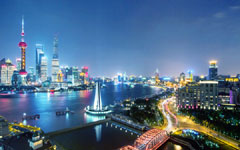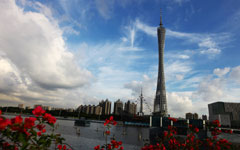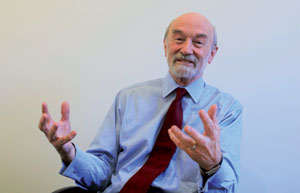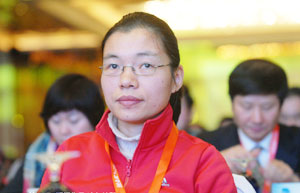Chinese Dream in Western Eyes
By Robert Lawrence Kuhn (China Daily) Updated: 2014-04-21 06:56Li Junru, former vice-president of the Central Party School, said that it is a misunderstanding to worry about China's expansion when the country is seeking rejuvenation. Rather, he said, "we put forward the concept of rejuvenation based on our historical experience that lagging behind leaves one vulnerable to attacks".
What about that danger of "self-fulfilling prophecy"? It cuts both ways. If foreign powers, led by the US, do in fact strategize to "contain China" (artlessly applying George Kennan's classic Cold War narrative of "containing" the Soviet Union), then China will react adversely and confrontation will be made more likely, not less.
 |
 |
Foreigners are wary of relying on China's goodwill, no matter how genuine. This frustrates China, but China must not cast blame or conjure up conspiracies. Better is to show how China's national interest would be undermined by trying to assert hegemony. China's main mission is to elevate the standard of living of its citizens and international troubles undercut China's capacity to achieve this goal.
I like to describe China's national dream from seven interlocking perspectives: Strong China - economics, governance, science, defense; Stable China - social consistency, minimal shocks or surprises; Bountiful China - improving living standards for all citizens, rural and urban; Harmonious China - goodwill among social classes and ethnic groups, appreciation of differences; Civilized China - equality in opportunity, impartiality under the law, high culture, respected morals; Beautiful China - clean air and water, attractive cities, lovely countrysides; Creative China - distinction in science, innovation in art, products "Created in China". A "Strong China" does have pride of place, but military might is only one facet of China's strength - and there are six other categories composing the grand goal.
Looking back, future historians will likely assess the Chinese Dream as a visionary milestone that energized President Xi's transformation of China across a broad spectrum of complex economic, social and governance issues. The entire world should benefit - although missteps along the way will be easy to make. Vigilance and diligence are not optional.
I conclude with a personal story. Two years ago, to honor the achievements of China's previous leaders, I was asked to co-produce, host and write a TV documentary series. While this may be a worthy project, I suggested that it may not be the best way to tell the real story of China to international audiences. Better, perhaps, might be to explore the problems - the challenges - that China's new leaders face.
The author is an international corporate strategist and investment banker, the author of How China's Leaders Think and the biography of former president Jiang Zemin, a commentator on BBC, CNN, CCTV and Bloomberg. The views do not necessarily reflect those of China Daily.
- A lesson for China from the knights in armor
- Chinese Dream in Western Eyes
- Cities wrong to bank on FTZ status
- Power shift will fuel IMF restructuring
- Reed Exhibitions strengthen operation in China
- World premieres at Beijing auto show
- China streamlines tax break procedures for SMEs
- China to maintain high grain output in 2014-2023

















